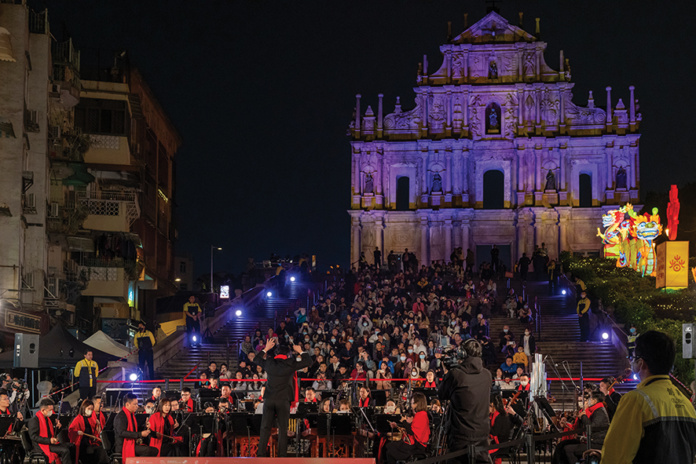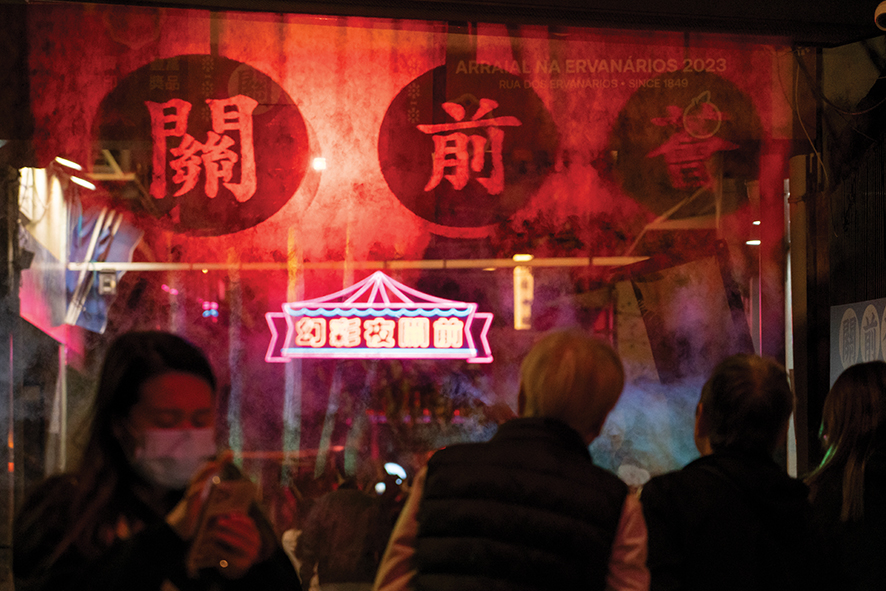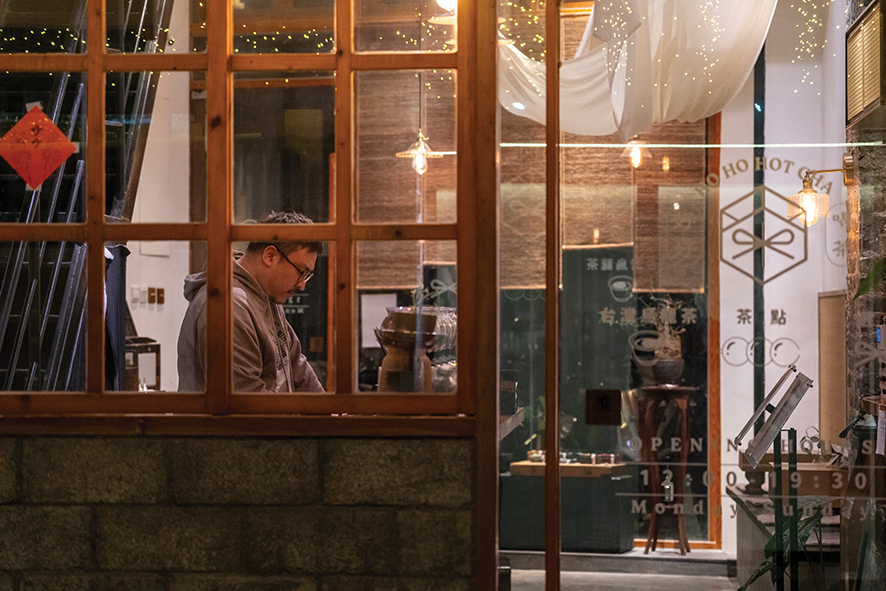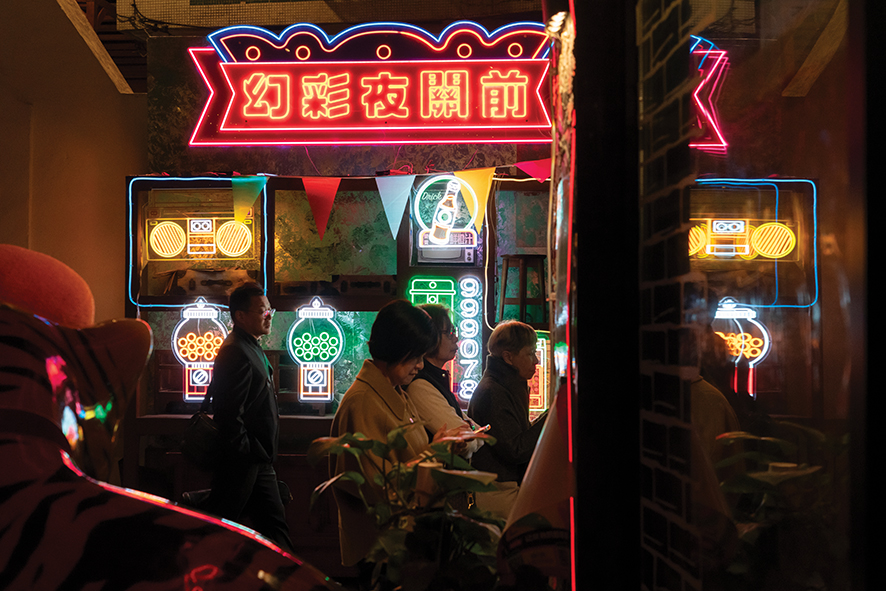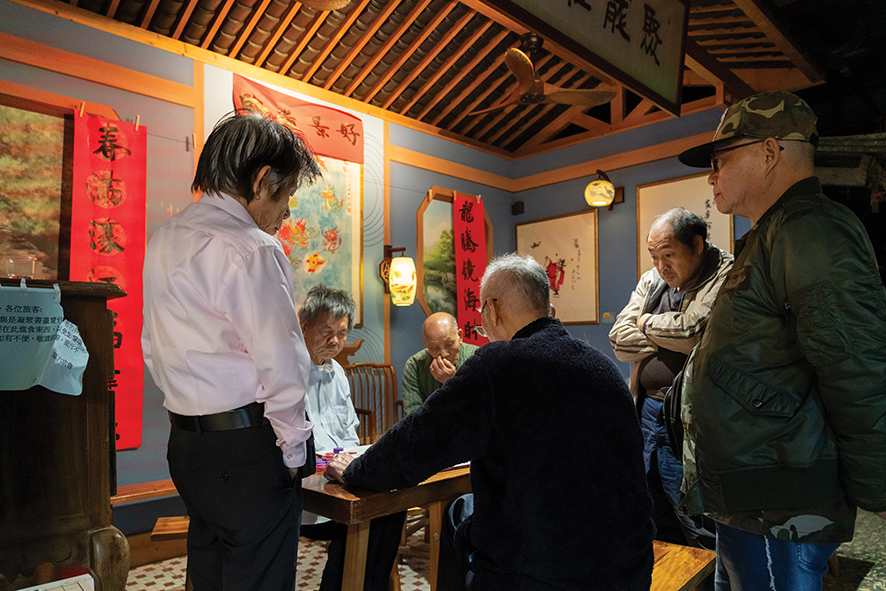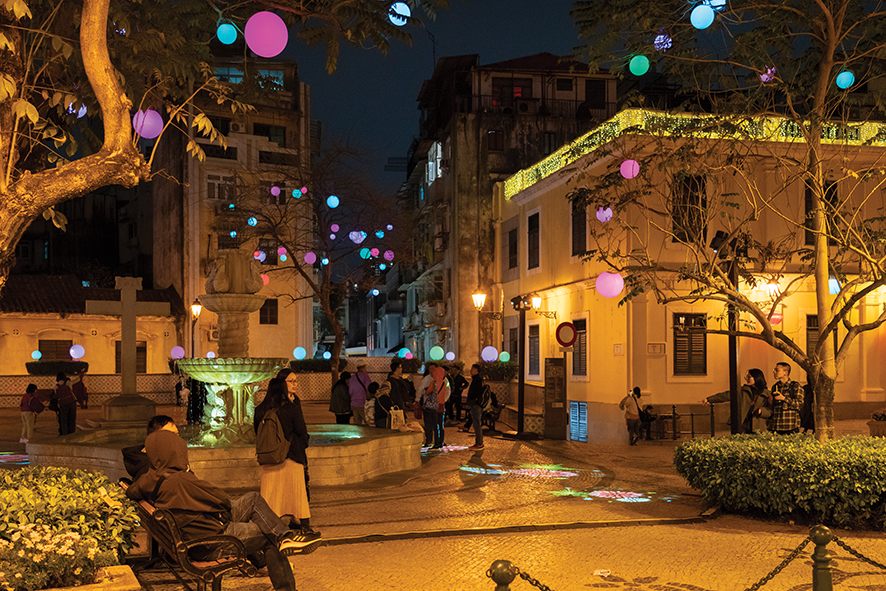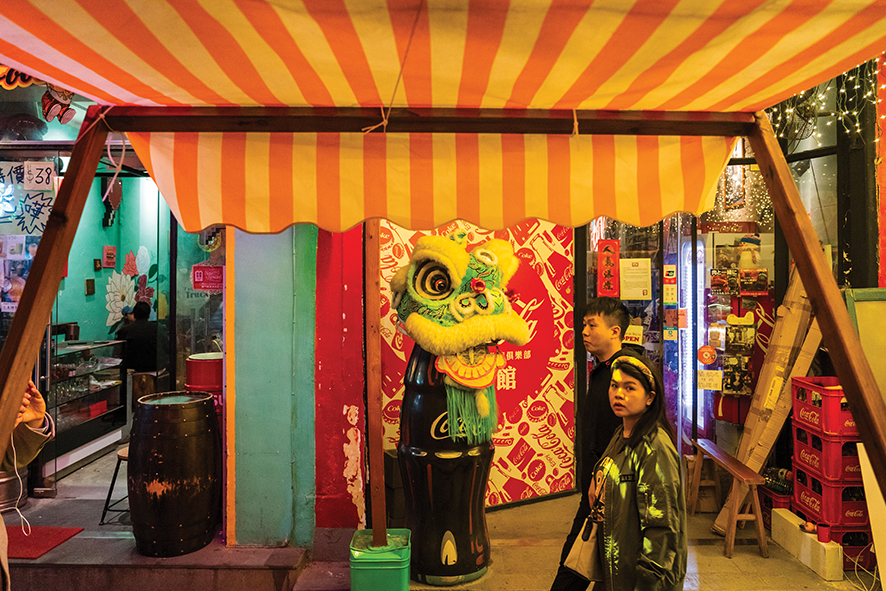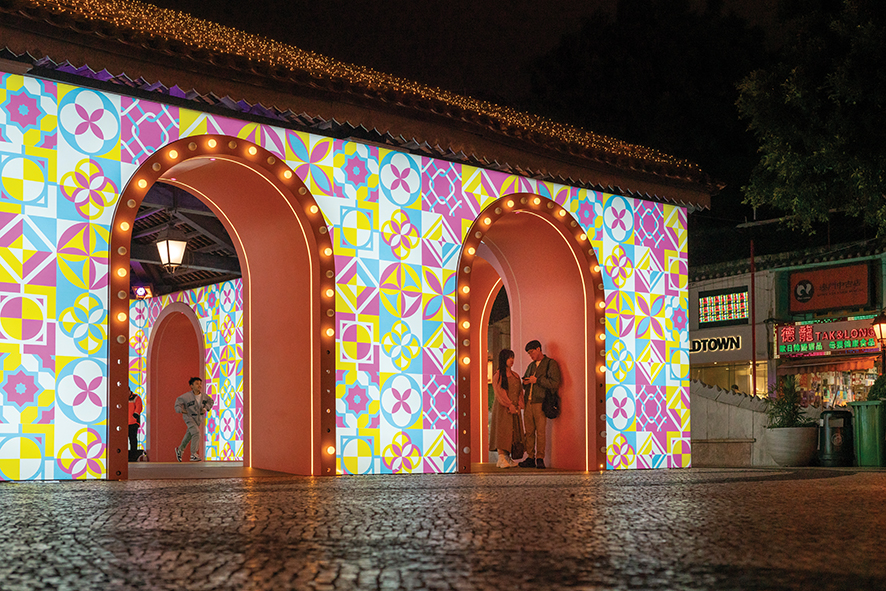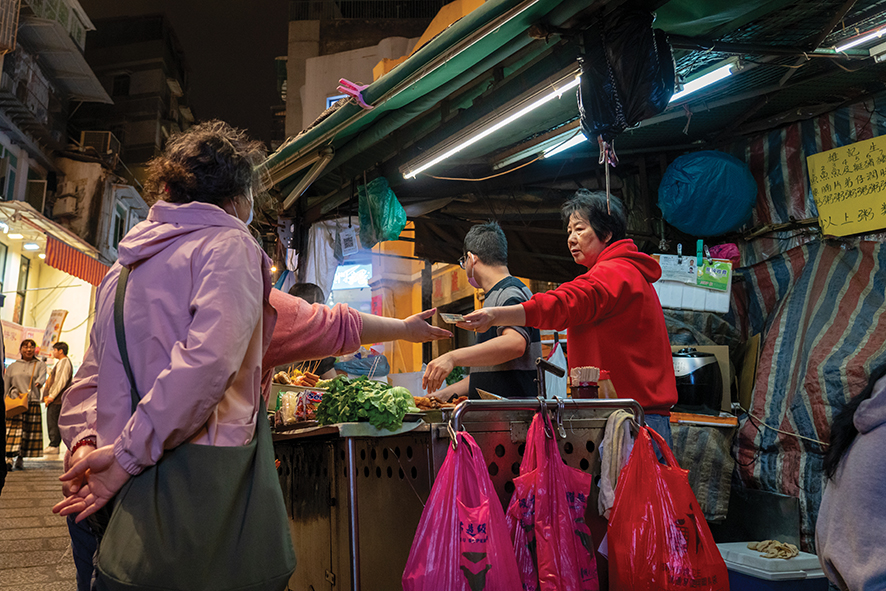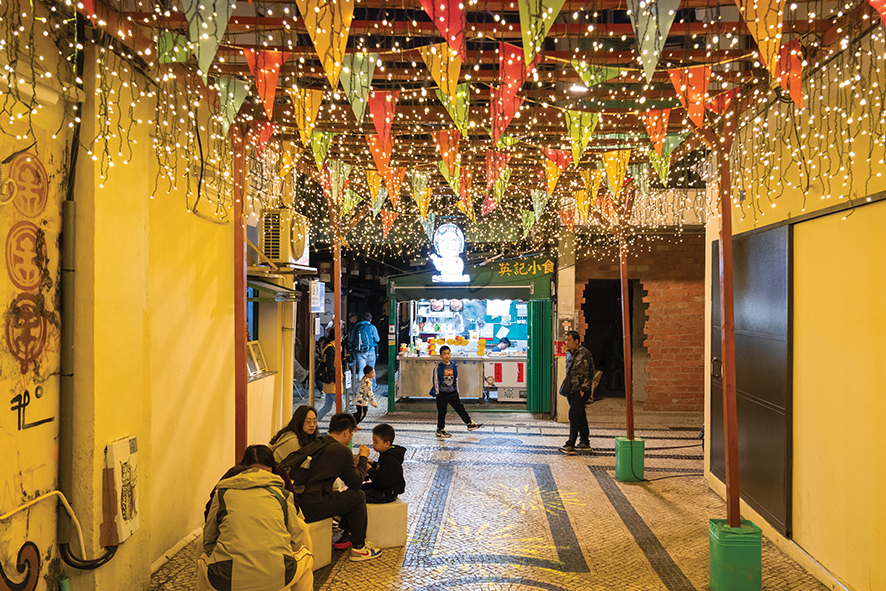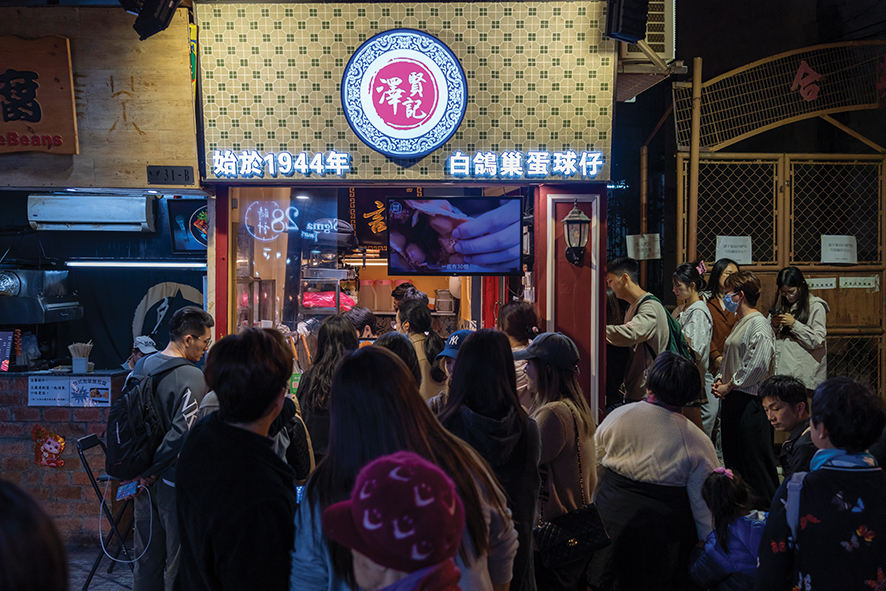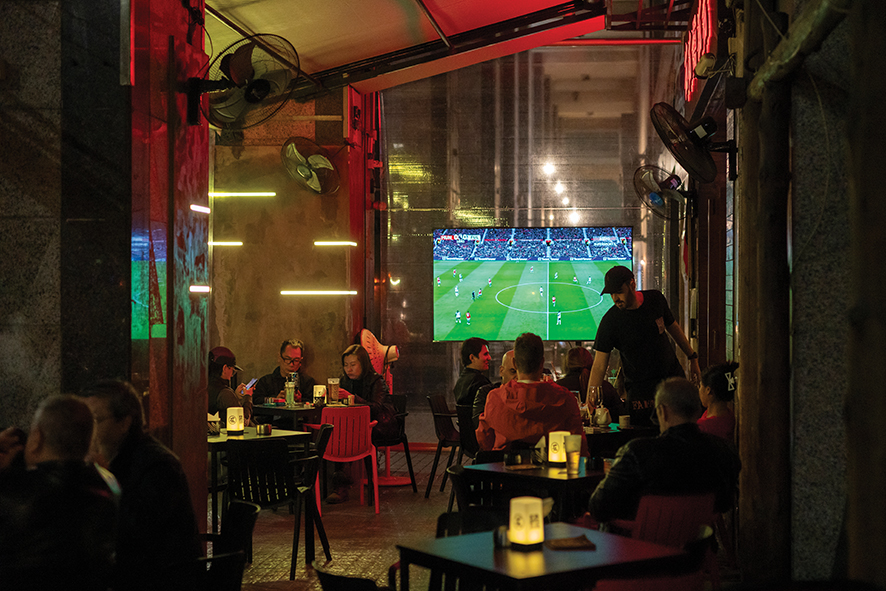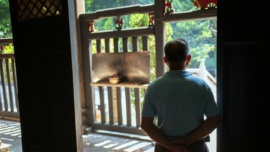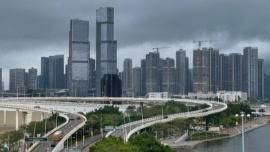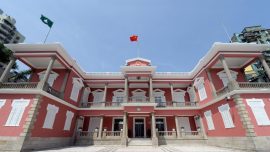Observers emphasise the need for all community stakeholders, including officials, gaming operators, local businesses, and the general public, to collaborate in finding solutions to broaden the range of nighttime attractions in the city beyond casinos and nightclubs. The objective is to extend visitors’ stays in Macau and bolster the local economy.
By Tony Lai
Photos by Oswald Vas
RMB48 trillion
– Estimated scale of night economy in Mainland China in 2023
When considering nightlife activities in Macau, what typically comes to mind are often splurging on gaming tables in casinos, dancing the night away in glamorous nightclubs at integrated resorts, and socialising at local bars. However, the Macau government has a vision that extends beyond these conventional options, aiming to attract visitors from diverse markets and encourage them to prolong their stay.
Macau has already set its sights on broadening its nighttime appeal in the review of the Macau Tourism Industry Development Master Plan in 2021, and this commitment is further reinforced in its blueprint for economic diversification between 2024 and 2028. According to the latest official document, published in November, the city recognises the need for more nighttime tourism and entertainment projects to “promote the growth of the night economy, attract tourists to extend their stay in Macau, and boost community consumption.”
To achieve these goals, as outlined in the diversification plan, Macau is implementing a wide range of measures: gaming operators are encouraged to host regular concerts, resident shows, and other entertainment performances, while captivating nighttime tourism events that combine gastronomic and cultural experiences are also in the pipeline.
“A considerable number of visitors have been drawn to the city to attend concerts and shows… but they have nowhere to visit in the community at night at the moment.”
– Andy Wu, chairman of the Travel Industry Council of Macau
No greyhound racing, more bazaars
Additionally, existing events and programmes are being consolidated and optimised. One of them is the “Light up Macao,” an annual event established in 2015. This event features light installations, mapping shows, and other interactive offerings. The scale of the latest edition, “Light up Macao 2023,” was expanded to last for three months, from December 2023 to February 2024, and covered a variety of locations in the city.
This three-month extravaganza, organised by the Macau Government Tourism Office (MGTO) in collaboration with the city’s six gaming operators, also partnered with the Industry and Commerce Association of Macau Northern District to host a night market in the northern district for the first time. The night market, named the Snowy Wonderland, took place at the former Canidrome site—the greyhound racing stadium—and featured a wide range of attractions, including a simulated ice skating rink, lighting installations, family workshops, game booths, and various interactive experiences.
In conjunction with the Snowy Wonderland night market, the northern district chamber mobilised over 80 merchants in the district to offer discounts and special promotions, as well as extend their opening hours to meet the demand for nighttime activities, says Wong Kin Chong, the president of the chamber. “Initiatives like ‘Light up Macao’ can help attract and retain residents to play and shop in the northern district, as well as pulling tourists to venture into the district,” he says. “The authorities can also better utilise the former Canidrome site to host more shows, bazaars, and other entertainment activities on a regular basis to attract visitors to the northern district, particularly during nighttime.”
The transportation service should also be further improved to facilitate the development of the night economy in the northern district. “There are not enough public transportation means to fetch visitors from other parts of the city to the northern district at the moment, for instance, it’s difficult for them to grab a taxi,” Mr. Wong reasons.
“Different elements should be incorporated into nighttime events and activities across districts to avoid overlaps.”
– Lei Cheok Kuan, president of the Industry and Commerce Federation of Macau Central and Southern District
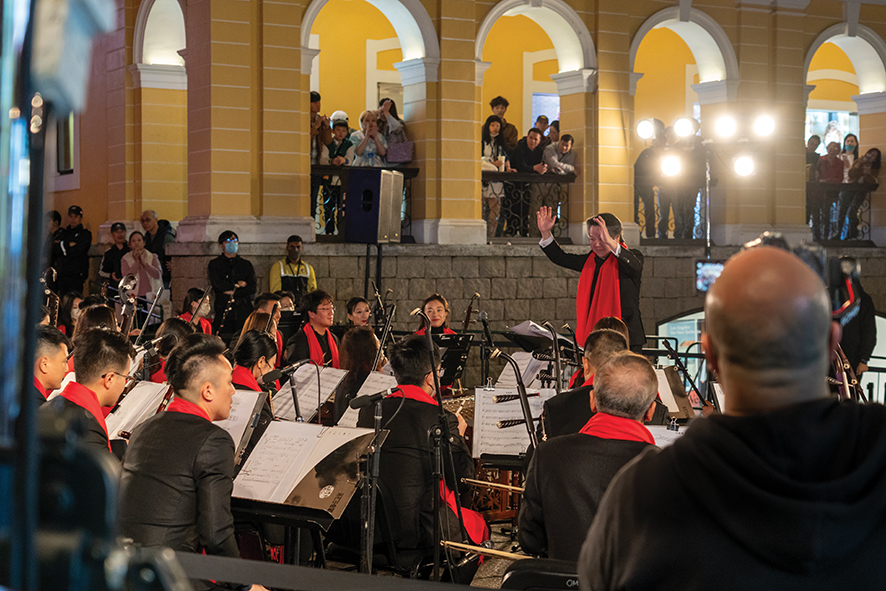
Purposes for nightime offerings
The development of the night economy has become a prominent focus in the region in recent years, especially following the publication of an official guideline by the Chinese State Council in 2019. This guideline encourages provinces and cities in Mainland China to actively cultivate the nighttime cultural and tourism economy, particularly during the restructuring of the mainland economy, which has experienced lacklustre growth in recent years. Across the border, the night economy refers to business activities in the service sector that occur between 6 pm and 6 am the following day.
A recent report from the Chinese Ministry of Commerce reveals that over 60 percent of consumption in mainland cities now takes place at night. For example, in the first half of 2023, nighttime cultural and tourism consumption in Guangdong province reached RMB 710.2 billion (US$100.5 billion/MOP 809.5 billion), accounting for 61.6 percent of total consumption in the province’s respective fields. Chinese marketing institution iiMedia Research also forecast in a recent report that the scale of the night economy on the mainland exceeded RMB48 trillion in 2023, marking a 13.2 percent increase from RMB 42.4 trillion in 2022. This value also surged by over half, from just RMB 30 trillion in 2020.
In nearby Hong Kong, the authorities and the community also attach importance to the development of nighttime activities by launching the “Night Vibes Hong Kong” campaign in September. The campaign showcased a diverse array of entertainment, arts, culture, leisure, and gourmet offerings in Hong Kong, enriching the night scene of the Asian financial centre and boosting tourism in the post-Covid era.
Samuel Tong Kai Chung, president of the Macau Institute of Management, emphasises that Macau has long offered distinctive nighttime experiences within its integrated resorts. However, to further innovate and enhance its offerings in the future, it is crucial for the city to define the primary objectives of developing the night economy. “The purposes of developing the night economy in Mainland China are to stimulate domestic demand and address unemployment issues, while the objectives in Hong Kong are to revitalise the community economy and boost consumption among tourists and residents,” he illustrates.
To develop the night economy in the city, the scholar suggests that the government and other stakeholders should consider organising more weekend nighttime events and activities across various districts. “This can not only reduce the impact on the livelihoods of residents but also create new business opportunities for local merchants in the food and beverage and cultural creative sectors, as well as foster youth entrepreneurship,” he continues.
“The purposes of developing the night economy in Mainland China are to stimulate domestic demand and address unemployment issues, while the objectives in Hong Kong are to revitalise the community economy and boost consumption among tourists and residents.”
– Academic Samuel Tong
Efforts by gaming operators
Macau has previously explored the idea of expanding its community nighttime offerings. Back in 2011 and 2012, the authorities proposed the establishment of a regular night market at Sai Van Lake Square, adjacent to Macau Tower. However, the proposal was ultimately shelved due to significant opposition from the local community. Concerns were raised about the potential impact on residents’ daily lives and the potential damage to the leisure surroundings of the area. Currently, the Hong Kung Night Market, which sporadically takes place on weekends at Largo do Pagode do Bazar near Avenida de Almeida Ribeiro, the city’s main thoroughfare, is the only existing regular night market in Macau.
During a Legislative Assembly session in November, Macau’s Secretary for Economy and Finance, Lei Wai Nong, emphasised that the Macau night economy consists of more than just night markets, as it should also boast a diverse range of offerings, including concerts and shows organised by gaming operators, government-sponsored theatre programmes, and community events.
Following the lifting of COVID-related travel restrictions in early 2023, Macau’s six gaming operators have been at the forefront of inviting regional and international artists to perform in local concerts and shows. The response has been overwhelmingly positive, with notable acts like international star Bruno Mars, K-pop sensation Blackpink, and Cantopop legends Jacky Cheung and Eason Chan drawing enthusiastic crowds.
These concerts have also propelled business turnover for the retail and food and beverage (F&B) sectors in the vicinity of the show venues. For example, it was reported that during the two days of concerts by the Korean boy group Seventeen in Taipa in January, the business turnover of small- and medium-sized enterprises (SMEs) next to the show venue rose by over 30 percent.
In addition, the current revitalization projects in Macau’s six districts, collaboratively undertaken by the gaming operators and the government, are also incorporating exciting nighttime offerings. For example, Wynn Macau launched the “Rua da Felicidade Pedestrian Zone” in September as a community revitalization initiative, infusing elements of a night market into the downtown area of Macau Peninsula. Another gaming operator, Melco Resorts & Entertainment, is responsible for rejuvenating the area surrounding Mount Fortress, located near the iconic Ruins of St. Paul’s, with more nighttime activities.
“Indeed, the concerts hosted by gaming operators have attracted customers away [from bars in the NAPE area] to the resorts… as there haven’t been any intriguing shows or events in our vicinity.”
– Mr. Ho, a bar owner at the NAPE area
Not everyone happy
Nonetheless, not all businesses have benefited from these night economy initiatives so far. Mr. Ho, a bar owner in the NAPE area, says his business has plummeted by about 40 percent since the lifting of years-long COVID-related travel restrictions in early 2023. “We have had fewer resident customers who have travelled abroad or visited Zhuhai and other parts of the mainland for leisure and entertainment,” he explains. “There’s no way we can compete with [counterparts in] the mainland… which can offer cheaper options due to lower rentals, labour costs, and other operating expenses.”
Despite the return of tourists to the city, it hasn’t significantly helped Mr. Ho’s business. “Tourists are more inclined to spend time in hotels and integrated resorts,” he says. “Indeed, the concerts hosted by gaming operators have attracted customers away [from bars in the NAPE area] to the resorts… as there haven’t been any intriguing shows or events in our vicinity.”
According to the latest government data, the number of visitors to Macau surged nearly fivefold year-on-year to 28.21 million in 2023, accounting for about 71.6 percent of the pre-pandemic volume. Separately, the tallies of mainland Chinese, Hong Kong, and international visitors in 2023 recovered to 68.2 percent, 97.8 percent, and 47.6 percent, respectively, of the corresponding levels in 2019.
“A considerable number of visitors have been drawn to the city to attend concerts and shows… but they have nowhere to visit in the community at night at the moment,” says Andy Wu Keng Kuong, Chairman of the Travel Industry Council of Macau. “Thus, the city should further optimise its nighttime activities in the neighbourhood districts, such as events and others, in order to extend the length of stay for visitors in Macau.”
The average length of stay for visitors in 2023 was 1.3 nights, a slight improvement from the pre-pandemic era’s 1.2 nights, the latest government data said. Overnight visitors accounted for about 50.4 percent of the total visitors to the city during the same period, totaling 14.2 million.
Comprehensive action plan
Meanwhile, Lei Cheok Kuan, president of the Industry and Commerce Federation of Macau Central and Southern District, emphasises the importance of action plans for the development of the night economy. “To continuously boost the night economy and attract tourists to different districts, comprehensive short, medium, and long-term measures are necessary,” he asserts.
The formulation of these measures should involve not only the authorities and gaming operators but also local small and medium-sized enterprises and business associations, he says, as his association is the organiser of the Hong Kung Night Market. “Different elements should be incorporated into nighttime events and activities across districts to avoid overlaps,” he adds.
“Macau has a lot of potential to develop various nighttime products, thanks to its renowned world heritage sites, rich and diverse cultural heritage, and other strengths,” he concludes.





